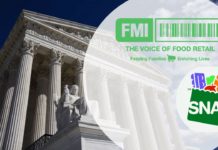How can we all forget the longest government shutdown in American history that took place just a few months ago? We just may possibly see a repeat performance from our friends on Capitol Hill because there is no plan in place at presstime to raise the debt limit ahead of the September 30 deadline. And it will not be an easy task because the Congressional summer break is looming and that means a few short weeks of work late July and then little gets accomplished till Congress returns in September. House Democrats have a $1 trillion funding package in their sights to avoid another disastrous government shutdown but Republicans say it is unlikely they will support such efforts.
Politico chimed in on the issue and said there is no deal in place to avoid $100 billion in spending cuts that take hold at the beginning of next year. Senate Majority Leader Mitch McConnell (R-KY) seems less than eager to negotiate with the Office of Management and Budget leadership. Instead, the White House has deputized Treasury Secretary Steve Mnuchin, a man who has never in his life led a successful fiscal negotiation with Congress, to take the lead. It’s going to be an interesting summer.
SNAP Data Disclosure
You will hopefully recall that I previously wrote about a very important court case that would determine if individual stores’ SNAP sales data would have to be publicly disclosed. The case bounced its way up through the lower courts all the way to the U.S. Supreme Court. On June 24, in the case of Food Marketing Institute v. Argus Leader Media, the Supreme Court ruled 6-3 that the U.S. Department of Agriculture (USDA) was not required to release stores’ SNAP redemption sales data under the Freedom of Information Act. FMI president and CEO Leslie Sarasin said in part, “The nation’s grocery stores have long kept confidential the amount consumers spend at individual stores whether through payment by cash, credit, debit or SNAP. This store-level sales data undoubtedly must be considered confidential because its release would provide an unfair advantage to competitors.” Amicus briefs were also filed by the National Grocers Association, National Retail Federation and the National Association of Convenience Stores. This is a solid victory for the food industry in this long-fought saga that dates back to 2011.
Single Food Safety Agency Back
Efforts to create a new, single federal agency to oversee the nation’s food supply is again in the news. Food Safety News reports that Congresswoman Rosa DeLauro (D-CT) and Senator Dick Durbin (D-IL) are teaming up to sponsor the Safe Food Act of 2019. At this time, the Food and Drug Administration (FDA) and USDA have oversight over food safety, with the FDA responsible for everything except meat, poultry and some egg products. DeRosa said, “….nearly a decade since we passed the Food Safety Modernization Act, our food supply is still plagued by large food outbreaks that cause foodborne illness. In the last year, we have seen numerous high-profile outbreaks and recalls, including contaminated romaine lettuce, large ground beef recalls, and the largest egg recall in nearly a decade.” The concept has won support of many food safety coalitions and organizations including the Center for Science in the Public Interest, the National Consumers League, STOP Foodborne Illness and the Consumer Federation of America – all very powerful allies. Both DeRosa and Durbin initially introduced similar legislation in 1999.
Update On CBD Oil
The Washington Post ran a major story last month on the current legal status of products containing CBD oil. The story explained the depth of interest in CBD oil products and the desire of many businesses to produce and sell them to the general public, but it also offered a cautionary note that the sale of CBD infused products was still illegal just as I mentioned previously in this column. The article reiterated again that the FDA has looked the other way and not cracked down on the many small batch lotions and ointments produced and sold locally but could react very differently as CBD oil is added to more mass produced products and food sold in grocery stores and mainstream commerce. In a related development, Food Navigator-USA reported that the appropriations bill that recently passed the House contained $100,000 for FDA to study the proper upper limit of CBD daily exposure, a question that agency and scientists believe needs to be answered before CBD infused products become widely available.
New Biotech Framework
The president has signed the Modernizing the Regulatory Framework for Agricultural Biotechnology Products Executive Order, instructing USDA, FDA, and the Environmental Protection Agency (EPA) to streamline the regulatory process “to facilitate the innovation of agricultural biotechnology to market efficiently, consistently and safely under a predictable, consistent, transparent and science-based regulatory framework.” The order is meant to address food industry complaints about the difficulty of getting new biotech products approved.
In a related matter about biotech food, the Associated Press (AP) has reported that salmon which has been genetically modified to grow faster than normal could be served in restaurants by late next year. The salmon, produced by AquaBounty, are the first genetically modified animals approved for human consumption in the U.S. Already, most corn and soy in the U.S. is genetically modified to be more resistant to pests and herbicides. But as genetically modified salmon make their way to dinner plates, the pace of change to the food supply could accelerate, said AP News.
Antibiotics In Meat
As I am always on the lookout for food industry news to report to you, I saw a recent piece in The New York Times on the continued promotion by the animal drug industry of antibiotics as regular preventive treatment for pigs and other livestock raised on industrial farms and in feedlots in crowded, germ prone conditions. It appears as if the World Health Organization (WHO) and FDA as well as the Trump administration, have been pleading with livestock producers to reduce the use of antibiotics important to human health. Regular use of antibiotics on livestock is believed to be one of the major reasons for the rise of antibiotic resistant bacteria. The Times article focused on last year’s World Pork Expo where the major animal drug company, Elanco, and its competitors, openly promoted their antibiotic cocktails to keep animals healthy and make them fatter. Modern science has sure complicated the beef and pork-raising industries but I guess that is a good thing.
Update On Dietary Guidelines
I’ve said before that dietary guidelines may be a boring subject to some, especially those who chow down on french fries, sweets and fatty foods, but to the food industry the guidelines are the holy grail. The food industry uses the official dietary guidelines for among other things, critically important marketing and promotional purposes. Health conscious consumers rely heavily upon the guidelines to make their purchasing decisions. At this time, the government is still holding public hearings on revising the guidelines. The official public comment period ended just three months ago, and more than 6,000 comments were submitted. Another public comment period occurs this month via public hearings in Washington and in January of 2020, a similar public comment hearing will be held in Houston. The difficult task of re-writing the dietary guidelines officially got underway earlier this year and should wrap up early next year. The Congressionally-appointed dietary guidelines committee, comprised of 20 health, educational and scientific experts, will report to USDA and the Health & Human Services secretaries when their deliberations are complete and then the official 2020-2025 Dietary Guidelines for Americans will be issued.Barry Scher is associated with the public policy firm of Policy Solutions LLC and may be reached at [email protected].





